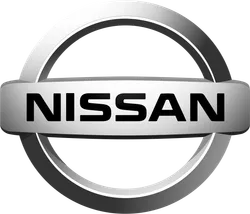

Nissan News - February 2025 Summary
Stay updated with the latest Nissan news as of February 2025. Discover key highlights, brand developments, and important updates regarding Nissan's performance and innovations.
Nissan News Summary - February 2025
Mycarro AI
Mar 1, 2025
Expansion of Electric Vehicle Lineup
In February 2025, Nissan announced significant strides in its electric vehicle (EV) production strategy. The company unveiled plans to expand its electric vehicle lineup significantly in response to the growing consumer demand for sustainable transportation options. The new models will include a revamped version of their popular Leaf as well as the introduction of two all-new electric SUV models aimed at competing in the rapidly growing EV market. This expansion is seen as part of Nissan's commitment to achieving carbon neutrality by 2050, aligning with global trends towards increased eco-friendliness in the automotive sector.
Partnerships for Battery Technology
To support its ambitious EV expansion plans, Nissan has entered into strategic partnerships with various energy companies and tech firms to advance battery technology. During the month, Nissan revealed that it would collaborate with a leading battery manufacturer to develop solid-state battery technology, promising longer ranges and shorter charging times compared to traditional lithium-ion batteries. This alliance is expected to enhance Nissan's competitive edge against other automakers investing heavily in EVs and could potentially optimize production costs, which has been a crucial factor in EV adoption.
Focus on Sustainability Initiatives
Nissan's commitment to sustainability extends beyond just manufacturing electric vehicles. In February 2025, the company released its annual sustainability report, shedding light on its environmental impact and future goals. The report highlighted Nissan's initiative to reduce waste in the manufacturing process and increase the use of recyclable materials in vehicular production. Also emphasized was the company's ongoing effort to install renewable energy sources in its factories worldwide, further supporting its goal of reducing carbon emissions throughout its production lifecycle.
Enhanced Autonomous Vehicle Technology
In addition to its focus on electric vehicles, Nissan made headlines with advancements in its autonomous vehicle technology. The company demoed features of its next-generation ProPILOT Assist system at a technology expo, featuring improved safety features and greater adaptability in various driving conditions. The showcased technology aims for expanded functionalities in urban environments, marking a notable evolution from its previous models. This enhancement indicates Nissan's dedication to leading the sector in both EV technology and autonomous driving capabilities.
Community Engagement and Social Responsibility
Nissan also reaffirmed its commitment to community engagement throughout February 2025. The company initiated several social responsibility initiatives, including partnerships with local organizations to promote road safety and education about electric vehicles. These programs aim to foster a more informed public about the benefits of electric mobility and engage potential customers through outreach. Nissan also announced plans to support local economies by investing in training programs focused on skills needed in the evolving automotive sector.
Conclusion
February 2025 proved to be a crucial month for Nissan as it continued to solidify its position in the automotive industry through developments in electric vehicle production, sustainable practices, and technological advancements. The company's proactive strategies are aligned with broader environmental goals and market trends, marking a step forward in its overall business strategy. As consumer preferences shift towards electric vehicles and cleaner technologies, Nissan's efforts illustrate its commitment to being an integral player in the automotive landscape.